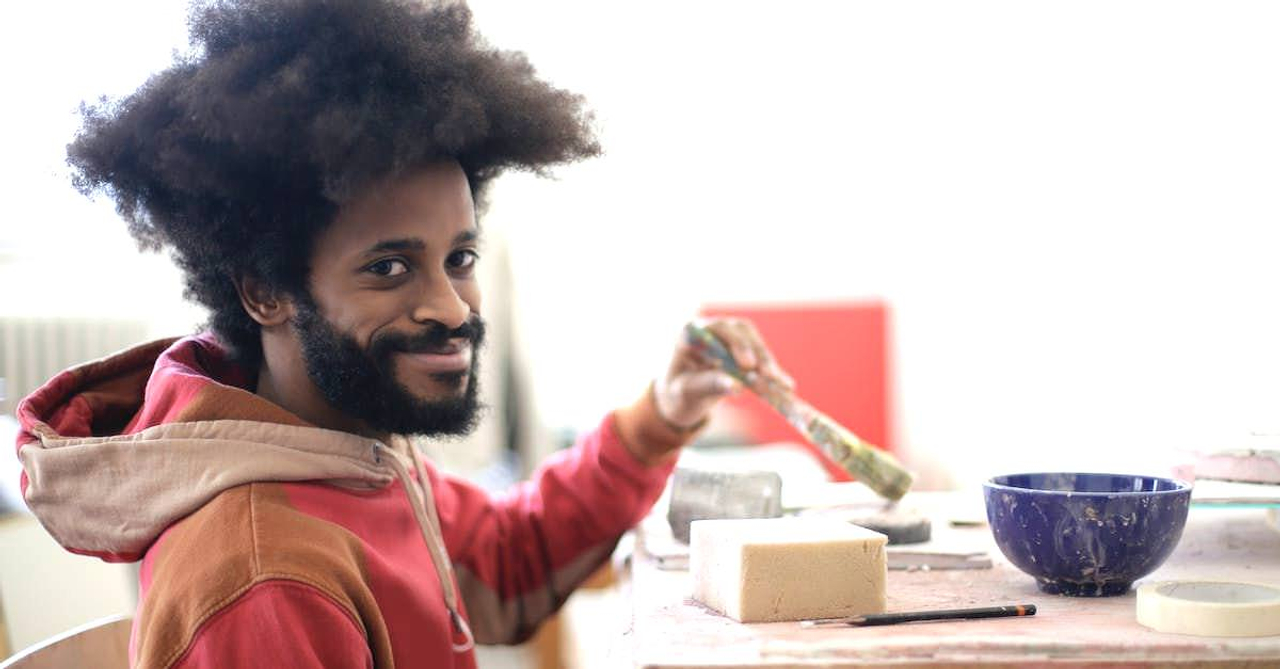Do you have trouble coming up with new ideas and finding inspiration for your writing projects? Do you find yourself feeling stuck and unable to express yourself creatively on a regular basis? If so, you're not alone; many writers go through periods where they can't seem to produce any meaningful content. Fortunately, there are several tried-and-true methods for increasing your creativity and overcoming writer's block. We'll share five hacks in this article to help you unleash your creative potential and get back to writing with confidence. These tips will help you overcome any creative challenges, whether you're a seasoned author, a blogger, or a student.
Understand the Causes of Your Writer's Block

Writer's block can be an exasperating and intimidating experience. The inability to generate new content or ideas can lead to unproductivity and a lack of motivation. The first step toward overcoming writer's block is to understand its underlying causes.
Fear and Self-Doubt
Fear and self-doubt are two of the most common causes of writer's block. Fear of failure, rejection, or criticism can stymie a writer's progress. A lack of confidence in one's abilities can be exacerbated by low self-esteem and imposter syndrome.
Perfectionism
Perfectionism can also be a contributing factor to writer's block. When a writer strives for perfection, he or she may become overly critical of their work and of themselves, which can lead to self-sabotage. Overthinking and overanalyzing can also cause a writer to become trapped in their own head, unable to generate new ideas.
Burnout
When a writer pushes themselves too hard or spends too much time writing without taking breaks, burnout can occur. This can result in mental exhaustion, a lack of motivation, and a decrease in creativity.
Lack of Inspiration
Finally, writer's block or a lack of inspiration can occur when a writer runs out of fresh and new ideas. This can occur when a writer becomes bored or stuck in a routine and fails to seek new sources of inspiration.
Understanding the underlying causes of writer's block is critical to overcoming it. Writers can boost their creativity and generate new ideas more easily by identifying and addressing the underlying issues.
Embrace a Creative Routine

Adopting a creative routine is one of the most effective ways to boost your creativity and overcome writer's block. When you follow a consistent routine, you train your brain to be more creative at those times. You can try out different routines to see what works best for you. Some writers find that their most creative ideas come to them first thing in the morning, while others prefer to work late at night.
Whatever your preference, make it a point to set aside time each day to work on your writing. Remove all distractions and concentrate solely on your writing during this time. This could include turning off your phone, closing your email, or working in a quiet environment. You can train your brain to enter a creative mode whenever you sit down to work on your writing by developing a routine that works for you.
Exploring New Ideas and Inspiration Sources
To overcome the dreaded writer's block, you must have a constant flow of ideas and inspiration. Exploring new ideas and sources of inspiration could be the key to unlocking your creativity and improving your writing abilities. Here are some pointers to get you started:
1. Read extensively
Reading can help stimulate your imagination and spark new ideas. Reading across genres and authors allows you to experiment with different writing styles, perspectives, and worlds, all of which can inspire your own writing.
2. Attend events and workshops
Attending writing or other creative events and workshops can expose you to new ideas and connect you with people who can inspire you. You could gain new insights, learn new skills, and meet new people.
3. Take a break and relax
It's easy to become engrossed in one's work and forget to take a break. Relaxing and taking a break can help to rejuvenate your mind and boost your creativity. You could go for a walk, go swimming, or do anything else that makes you happy.
4. Travel and explore
Traveling and exploring new places can broaden your horizons and introduce you to new possibilities and ideas. You could travel to different cultures, lifestyles, and environments and use your experiences to infuse new perspectives and ideas into your writing.
5. Collaborate and brainstorm with others
Collaborating and brainstorming with other writers or creatives can provide fresh perspectives and ideas that can help to spark your creativity. You could share ideas, receive constructive feedback, and create a supportive network of like-minded people.
Exploring new ideas and sources of inspiration necessitates being open-minded and curious. You can expand your creative potential and improve your writing skills by actively seeking out new experiences.
Try Mind and Body Relaxation Techniques
Writer's block can be a frustrating experience, but keep in mind that creativity is a natural process that sometimes requires a little coaxing. Mind and body relaxation techniques can help you overcome writer's block and improve your creativity. These techniques can assist you in clearing your mind, reducing stress and anxiety, and generating new ideas.
Meditation
Meditation is a technique for focusing on the present moment and relaxing the mind. You can improve your cognitive function, reduce stress and anxiety, and generate new ideas by meditating on a regular basis. Find a quiet spot, sit comfortably, and concentrate on your breathing. Try to clear your mind of all distracting thoughts. Begin with a few minutes per day and gradually increase the time as you gain confidence in the practice.
Yoga
Yoga is a physical discipline that incorporates movement, breathing, and meditation. Yoga can help you improve your flexibility, balance, and strength while also reducing stress and anxiety. There are many different types of yoga, so find one that is appropriate for your level and style. Yoga can help you connect with your body and calm your mind, which will allow you to tap into your creativity and overcome writer's block.
You can also try taking a walk in nature, practicing deep breathing exercises, or taking a warm bath to relax. Whatever works best for you, make time to unwind your mind and body. You can boost your creativity and overcome writer's block by doing so.
Collaborate with Fellow Writers or Creative Minds
Collaboration is an effective method for overcoming writer's block and increasing creativity. Collaboration with other writers or creative minds can result in the exchange of ideas, inspiration, and new perspectives. This type of collaboration can take many forms, including brainstorming sessions, writing groups, and even social media groups.
Brainstorming sessions, whether online or in person, can be extremely beneficial in terms of generating ideas for your writing piece. Writing groups, on the other hand, can help you improve your writing skills by providing valuable feedback and critiques on your work. Facebook writing groups, for example, can also provide a sense of community and allow you to connect with writers from all over the world.
Collaboration with other writers or creative minds can not only help you overcome writer's block and boost your creativity, but it also provides a sense of camaraderie and support in what can be a lonely endeavor. "Two heads are better than one," as the saying goes, and in this case, collaboration may be the key to unlocking your writing potential.
Use Technology and Tools to Simplify Your Writing Process
With technological advancements, writers can streamline their writing workflows, save time, and increase productivity. There are numerous apps, software, and tools available to help writers with every aspect of the writing process, from research to publishing. Here are a few examples of how technology can assist:
1. Writing Software
Scrivener, for example, provides a comprehensive solution for planning, composing, and formatting your work. It includes features such as outlining, storyboarding, word count tracking, and organization tools to help make the writing process easier.
2. Grammar and Spell-checkers
Grammarly and other spell-checking tools assist writers in identifying and correcting grammar, punctuation, spelling, and style errors. These tools not only save time but also improve writing quality by ensuring that it is error-free and adheres to linguistic conventions.
3. Research Tools
Research is an essential part of the writing process. Writers can use apps like Evernote to collect and organize their research materials, such as web pages, PDFs, and images, and then access them from multiple devices. This allows writers to concentrate on their writing rather than spending hours searching for information.
4. Time Management Tools
Distractions and procrastination can have a negative impact on a writer's productivity. Tools such as Trello and Pomodoro timers can aid in time management and focus. Trello can be used for project management, and Pomodoro timers increase productivity by dividing work into 25-minute increments followed by a short break.
5. Publishing Tools
Online platforms such as Medium enable writers to publish and reach a large audience. Custom visuals and graphics can be created using tools like Canva to accompany the writing, making the content more engaging and shareable.
To summarize, technology can help writers accomplish more in less time, work more efficiently, and create higher-quality content. By incorporating these tools into their workflow, writers can overcome the challenges of the writing process and concentrate on what they do best: creating compelling and impactful content.











